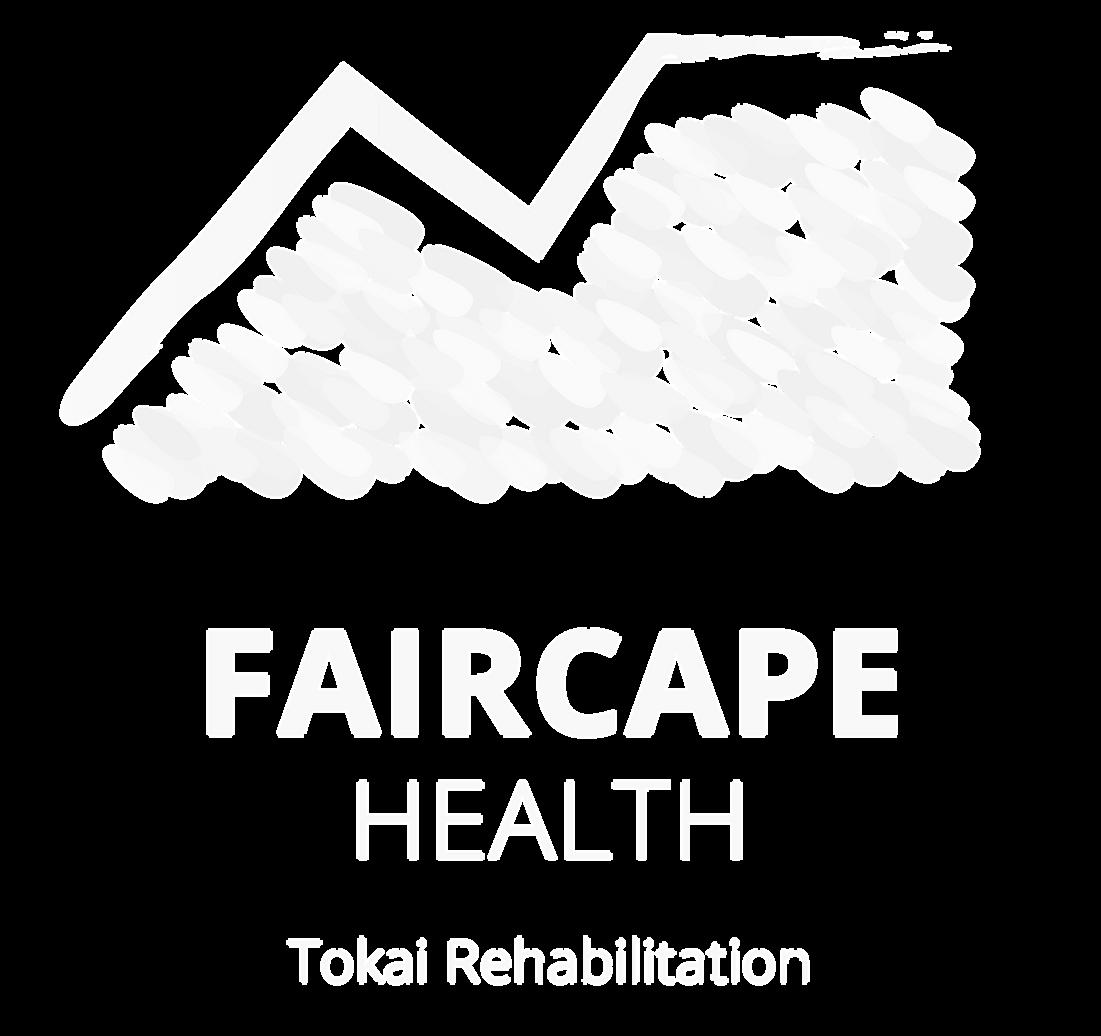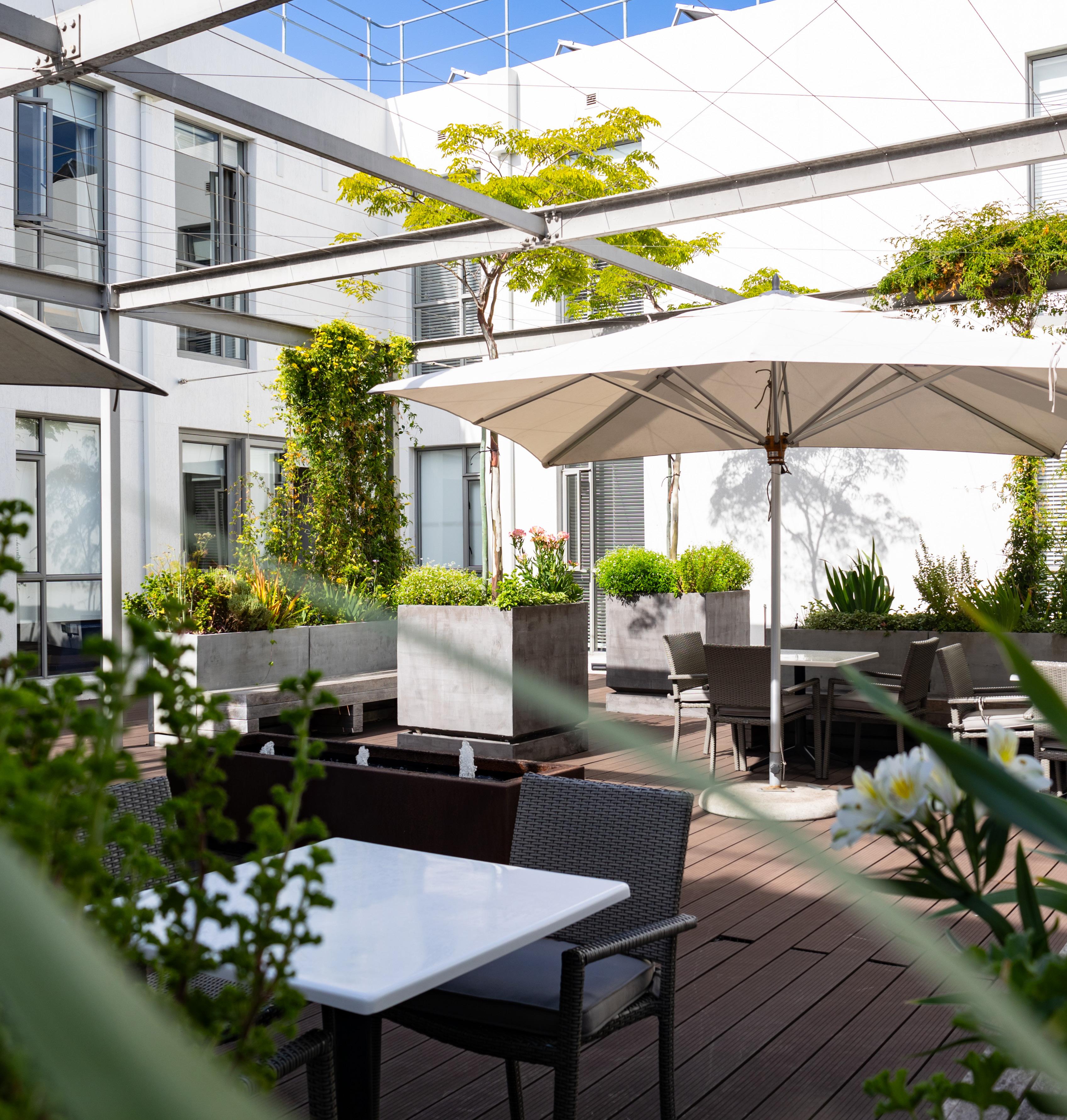

FROM THE DESK OF THE HEALTHCARE MANAGER
Dear Residents, Families, and Friends,
On behalf of the interdisciplinary team (IDT) at Faircape Health Tokai Estate, thank you for your continued support, trust, and engagement. We remain committed to delivering excellent, compassionate care at all times.
This quarter has been one of change and new beginnings. I am honoured to have joined as the new Healthcare Manager for the South and have enjoyed getting to know this special facility and its remarkable residents. We also welcomed Dr. Victoria Norman, our new Group Healthcare Manager, who brings invaluable experience and compassion to their roles.
Our clinical team of doctors, nurses, pharmacists, occupational therapists, physiotherapists and carers remain central to resident care, as do our non-clinical teams who continue to create a safe, welcoming
environment for all.
In recent months, we have strengthened our services by investing in staff development, with some team members attending the World Health Conference.
As we approach the final months of the year and the festive season, we are proud of our team’s dedication and remain committed to providing a safe, supportive, and joyful environment for all who call Tokai home.
Please feel free to reach out to me directly with any questions, concerns, or suggestions.

Leanne Dixon
Healthcare Manager
hcmanagersouth@faircapehealth.co.za
MEET DR MARLOUISE STEENKAMP
We are pleased to welcome Dr Marlouise Steenkam as the new Long-Term and Frail Care Physician at Faircape Life Clé Du Cap, Noordhoek and Tokai Estate. Dr Steenkamp is an experienced General Practitioner and holds a certificate in Advanced Cardiac Life Support, ASCI and ECG.
She is passionate about preventative medicine, has extensive experience in primary care and general practice, and is currently completing her Postgraduate Diploma in Palliative Medicine.
Email: TokaiDoctor3@faircapemedical.co.za
MEET YOUR OCCUPATIONAL THERAPY TEAM AT TOKAI
Celebrating Creativity and Growth in Our Golden Years

Over the past few months, our long-term care residents, many of whom are elderly or living with Dementia, have embarked on a remarkable creative journey. What started as simple art and crafts sessions has grown into a meaningful celebration of untapped talent, growing confidence, and the joy of learning new skills.
ART AS A PATH TO DISCOVERY
When residents first approached our art sessions, many were hesitant, but through a gentle, step-by-step approach and encouragement from our passionate staff, something began to shift.
We introduced them to basic drawing techniques, starting with simple shapes and lines. From there, they learned about different brush styles, colour blending, and even followed direct art instructions to create their very own canvas paintings.
As their skills developed, so did their confidence. Residents began to explore their own styles, experiment with colour, and, most importantly, express themselves in ways they hadn’t before.
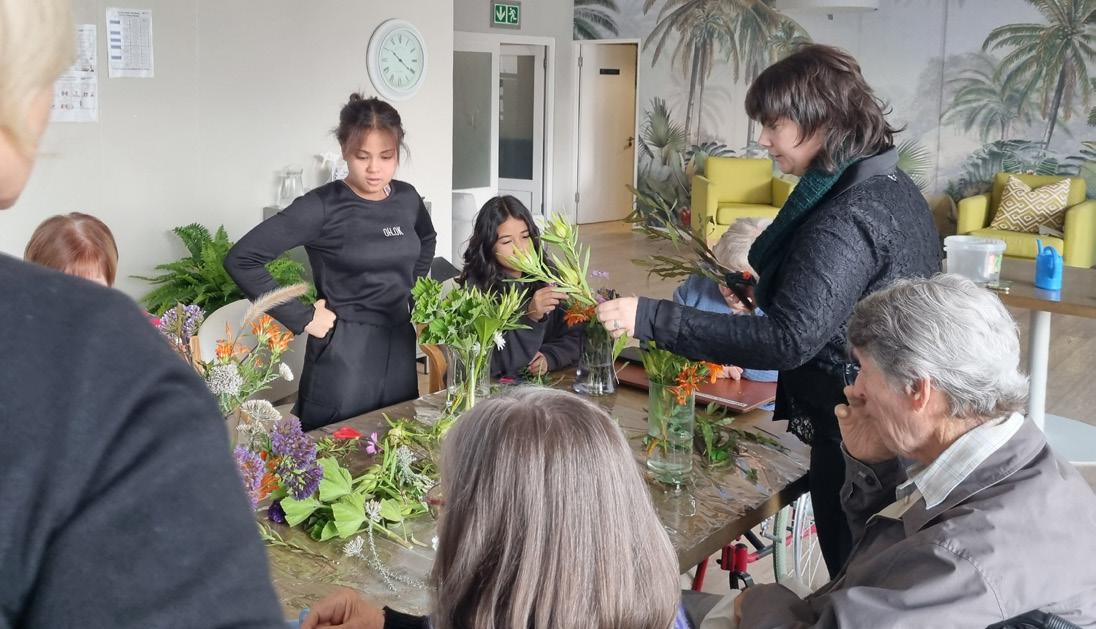
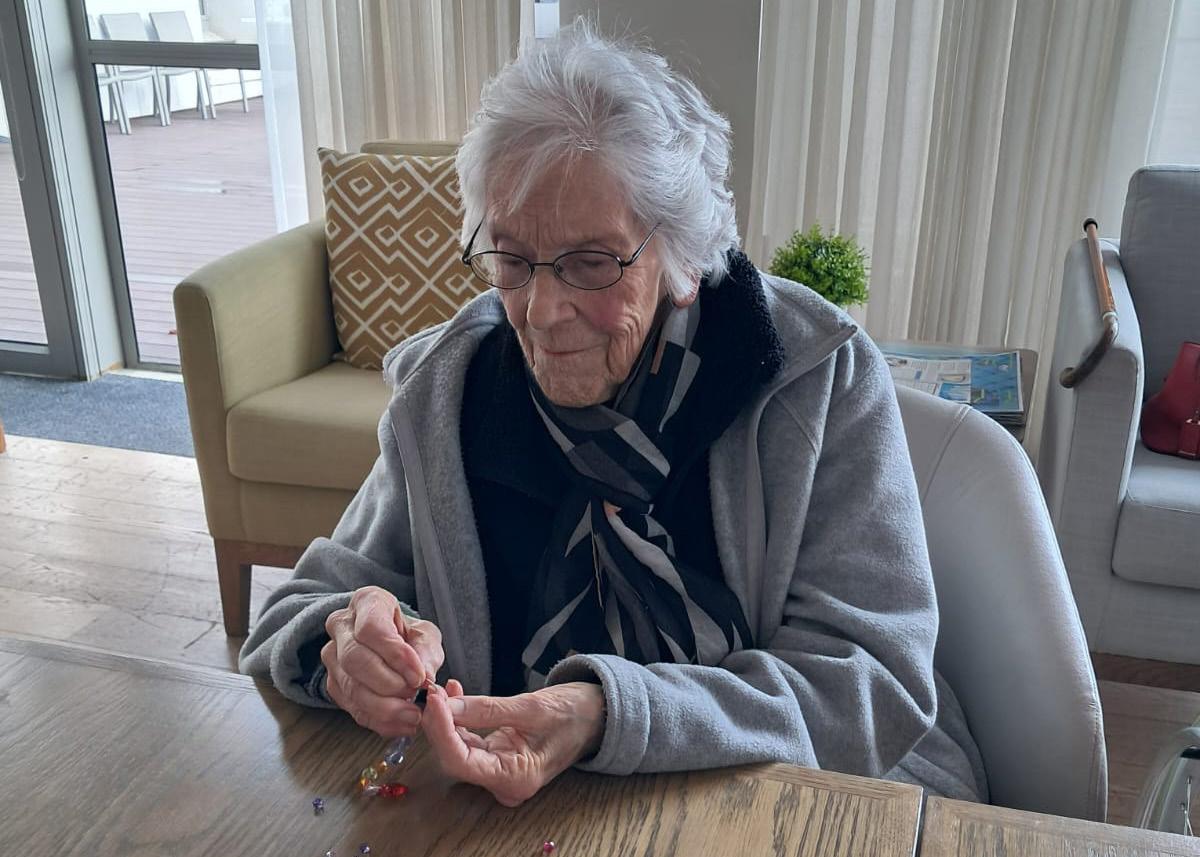
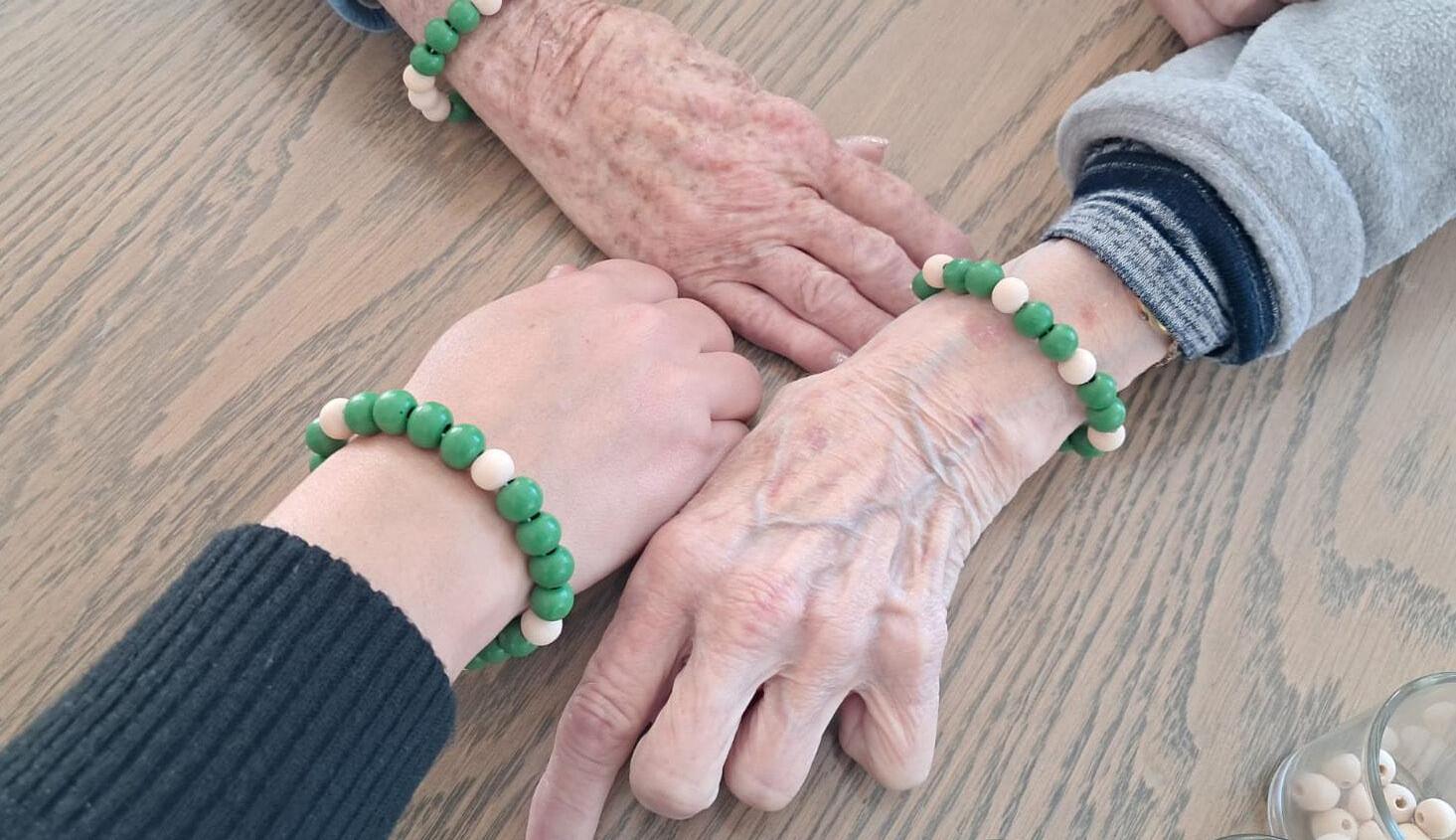
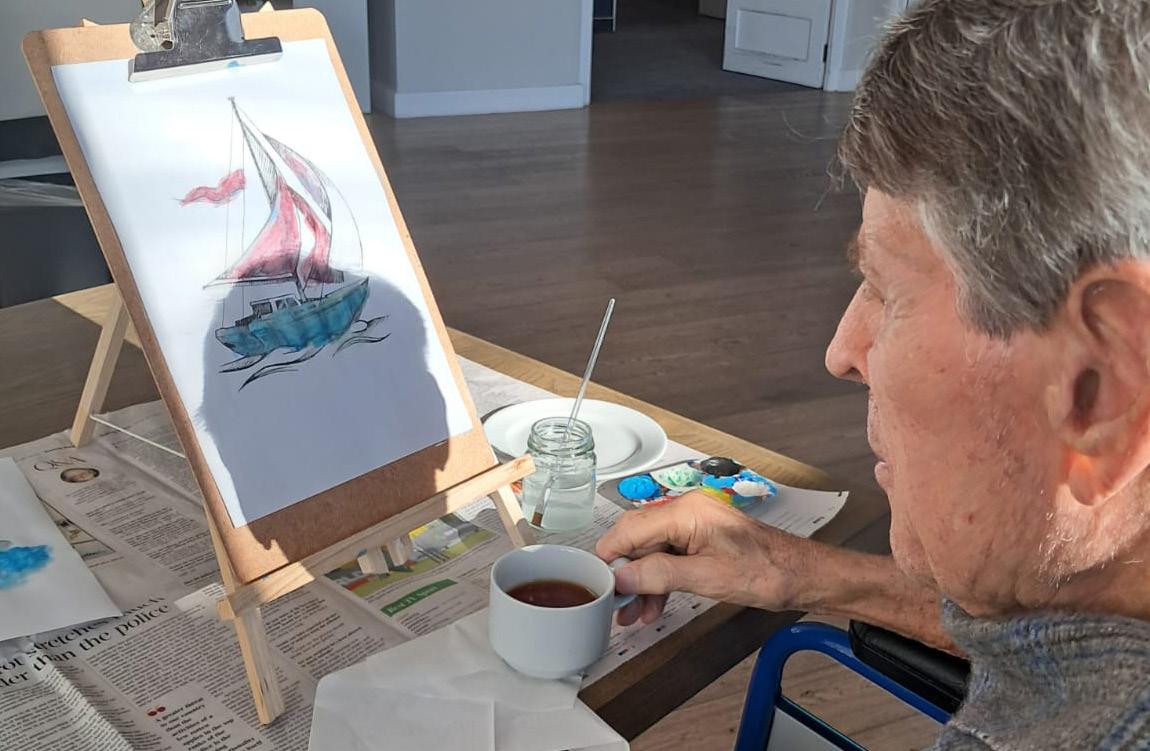
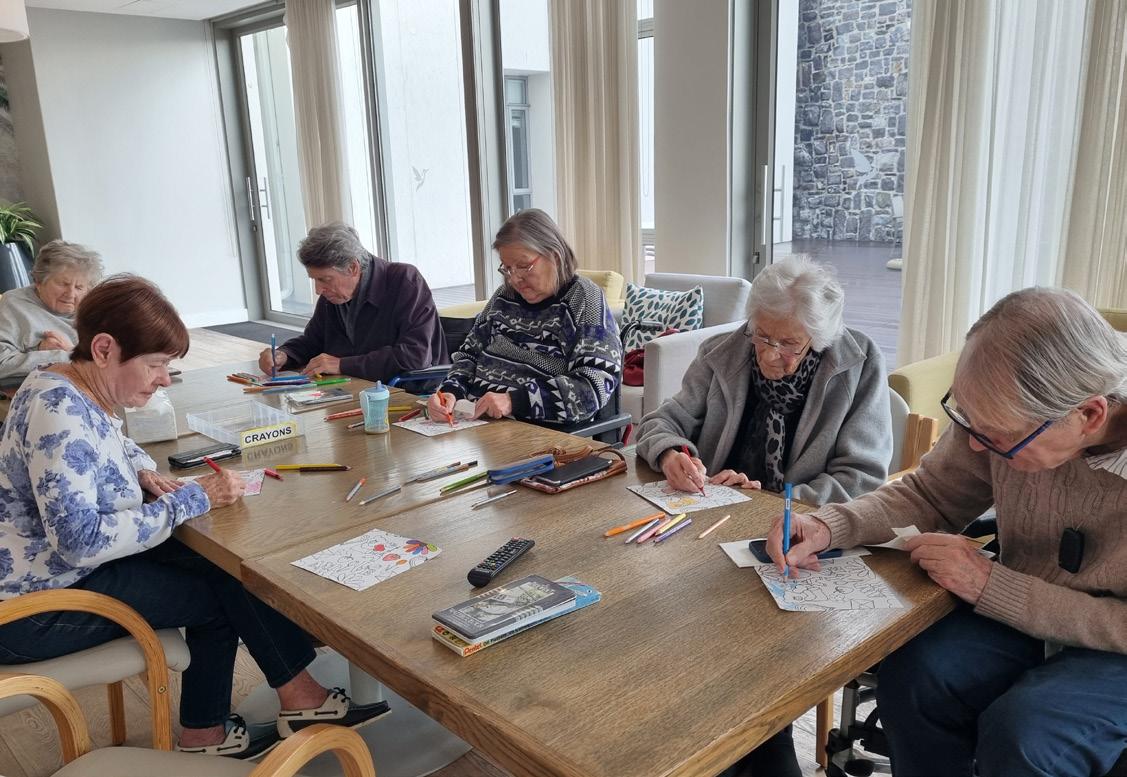
EXPLORING A WORLD OF CREATIVE MEDIUMS
Our art programme incorporates a wide range of artistic mediums and techniques to engage different interests and abilities. These include canvas painting, abstract art, rock painting and dotting, portrait pencil drawing, pastel colouring, and beading. Each activity is as much about the process as it is about the end result. The laughter, the “a-ha” moments, and the proud smiles when residents see their finished work are priceless.
For residents with Dementia, the benefits have been especially meaningful. Creative activities enhance memory recall, encourage communication, and provide sensory stimulation. More importantly, it offers a sense of purpose and achievement which is an essential part of quality of life.
These sessions have also strengthened social connections. Whether working side-by-side or sharing finished pieces with family, art has become a bridge between residents, caregivers, and loved ones.
If you haven’t seen the artwork created by our residents yet, we encourage you to visit one of our upcoming showcases. You might be amazed by what they’ve accomplished.
CELEBRATING WOMEN’S DAY
Honouring Herstory and Healing Through Reminiscence
In honour of Women’s Day, Tokai Healthcare celebrated the incredible women who reside within our community. Many of our residents lived through the 1956 march. Some were young mothers, others newly working, and some just finding their voices. They recall the tensions of the time, the strength required to raise families under oppressive laws, and the quiet resilience that defined their generation.
This celebration forms a significant part of our reminiscence therapy approach, an evidence-based method that uses discussion of past experiences to improve psychological wellbeing in older adults. When we create space for our residents to remember their contributions as daughters, mothers, workers, caregivers, and activists, we validate their identities and life stories.
Reminiscence encourages cognitive engagement, emotional expression, and social connection. The day was filled with meaningful activities like memory-sharing circles, music from the 1950s and 1960s, and a beautiful tea and poetry reading celebrating womanhood. Residents shared photos, heirlooms, and stories of their younger years.
In elder care, too often the focus is only on physical support. At Tokai Healthcare, we believe that dignity and purpose are equally essential, and recognising Women’s Day is part of a larger mission to ensure that our residents, particularly our female residents, feel seen, heard, and valued.
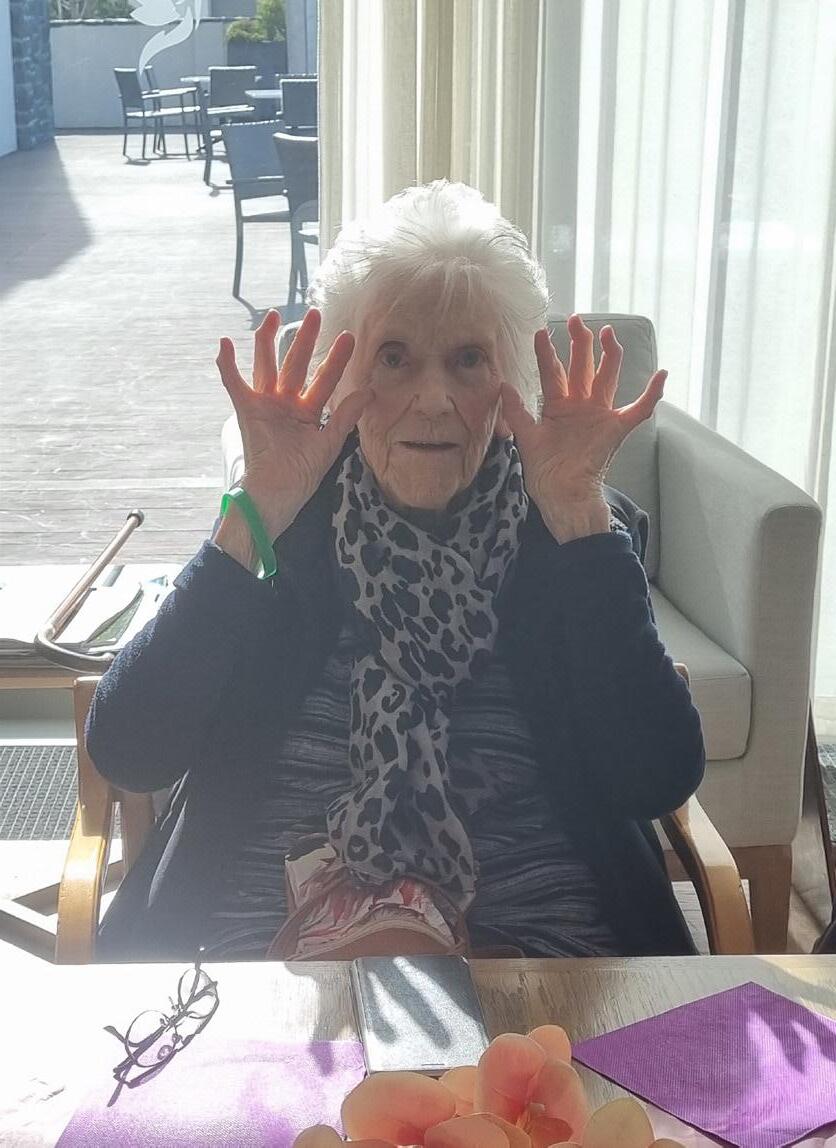
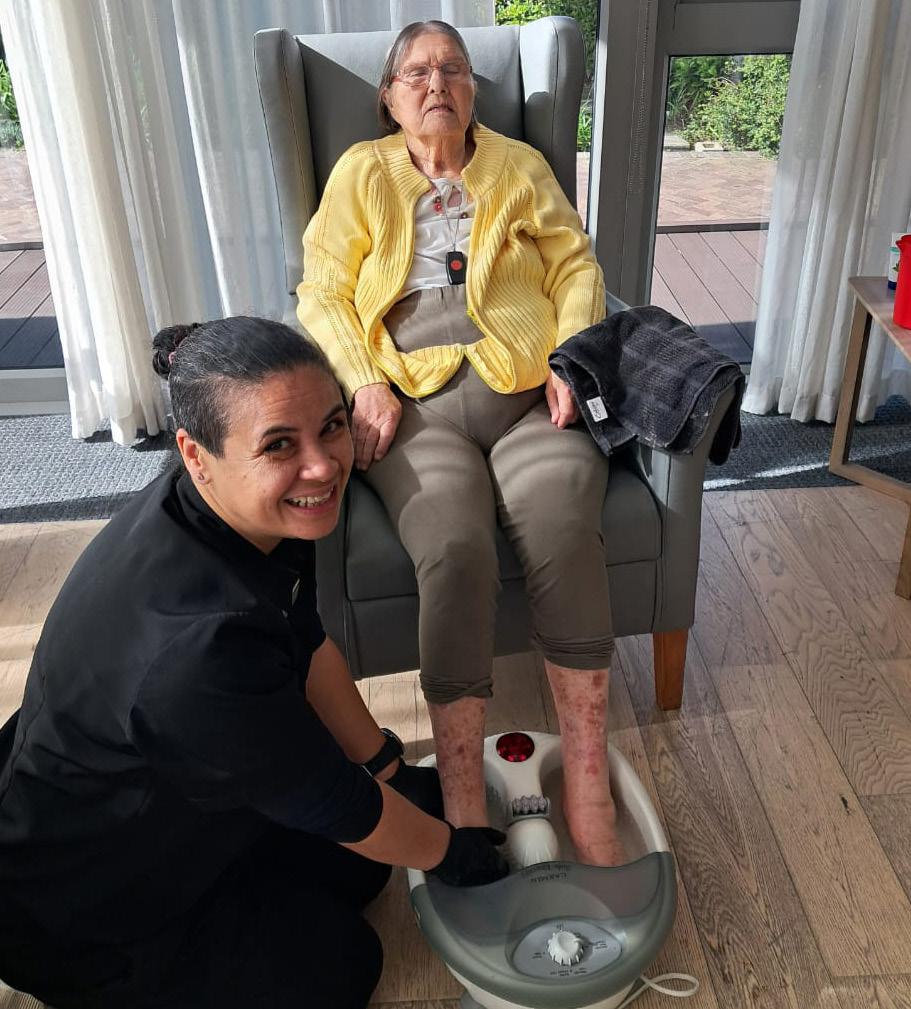
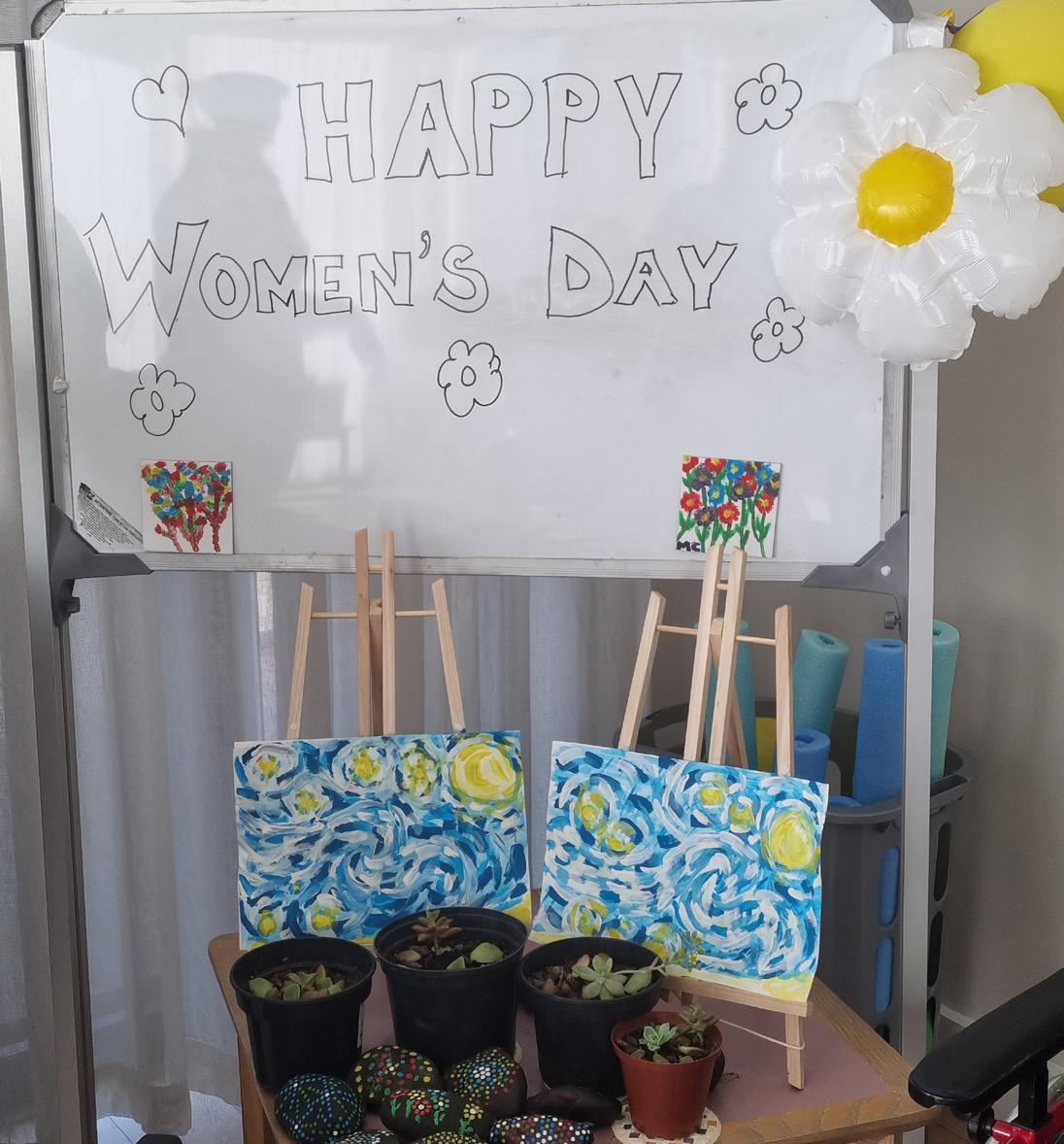
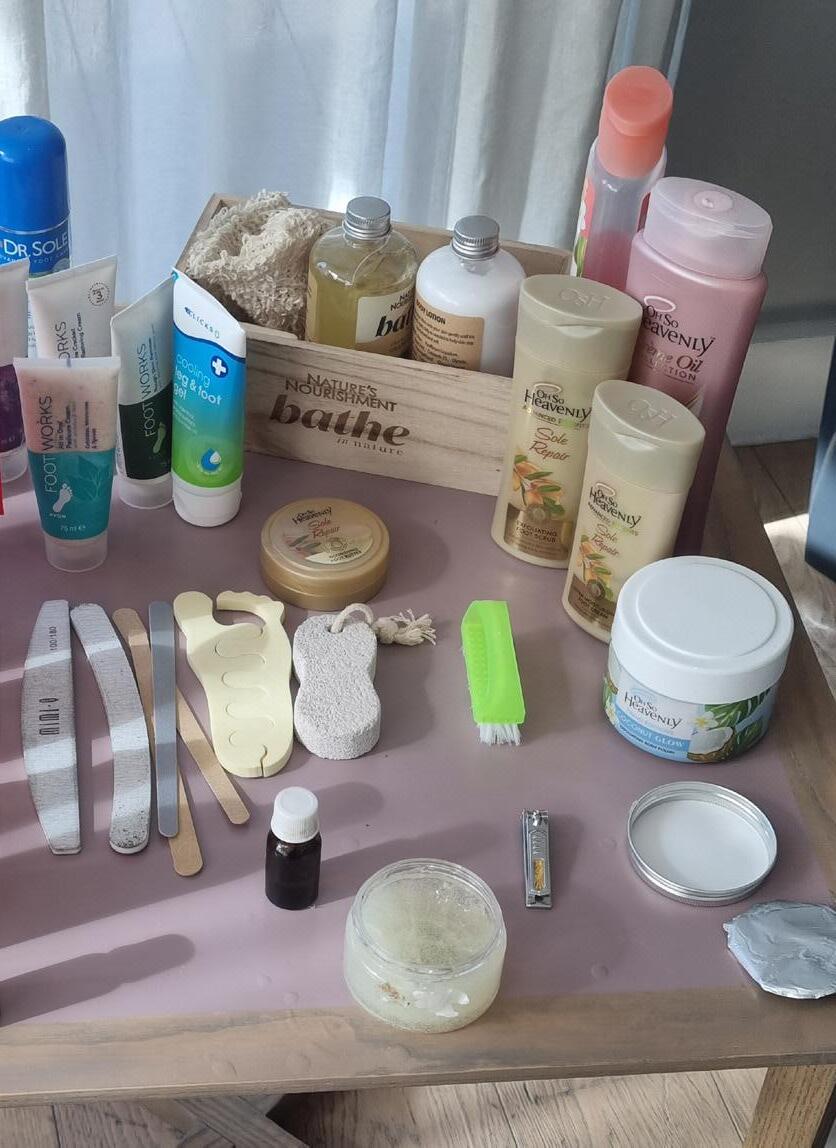
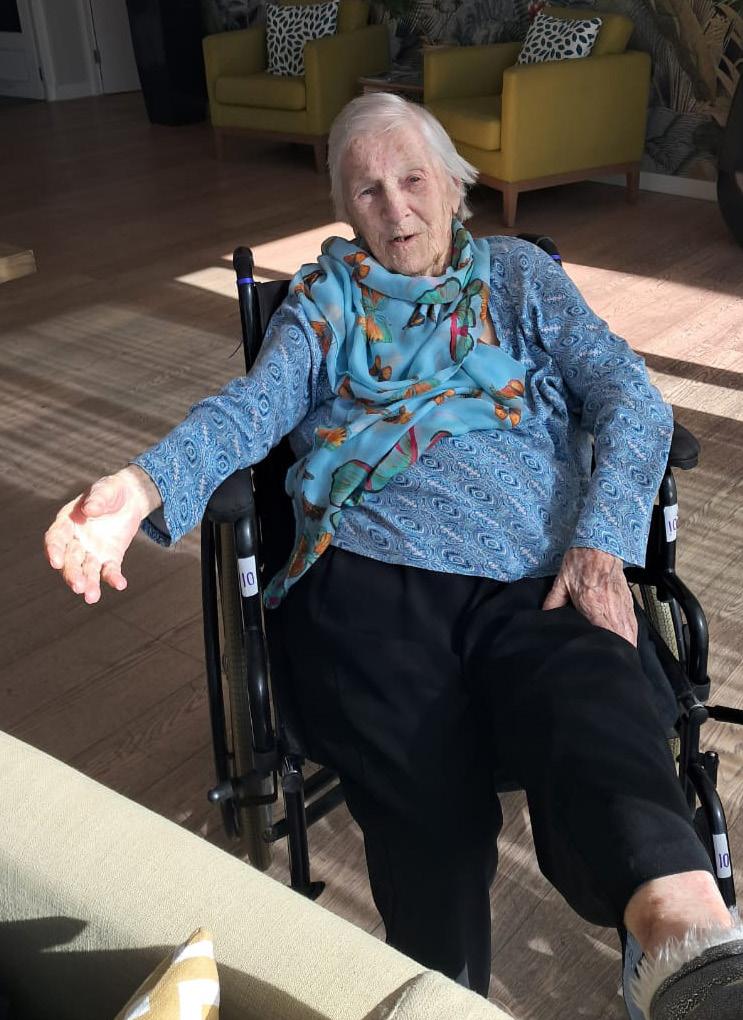
BRIDGING GENERATIONS THROUGH SONG
This month’s children’s concert at our long-term care facility was a beautiful reminder that joy, connection, and healing can transcend age. For our elderly residents, the presence of young children can spark joy, awaken fond memories, and provide a therapeutic sense of connection. Their laughter and energy bring life into spaces that can sometimes feel routine or isolating. In fact, studies have shown that inter-generational interactions can reduce feelings of loneliness and depression in older adults, improve cognitive function, and even lower blood pressure.
Bringing school groups into long-term care homes is a crucial part of holistic care. When children visit, they interact, ask questions, give high-fives, offer drawings, or share stories about their pets or favourite colours. These moments, however small, are deeply impactful and it’s not uncommon to see a resident singing along, clapping, or even shedding a joyful tear. The elderly often feel more seen, more appreciated, and more included in community life when these visits happen.
We encourage families, schools, and childcare providers to consider the power of inter-generational engagement. Whether it’s a musical performance, story time, or an art project, the benefits ripple far beyond the event itself.
Thank you to our tiny performers for filling our halls with song, laughter, and energy. Together, you are creating moments that are as healing as they are heartwarming.
Interested in organising a school visit or performance at our facility? We’d love to partner with you.
Reach out to our Community Life Coordinator to learn how you can bring joy, and healing, into our facility.
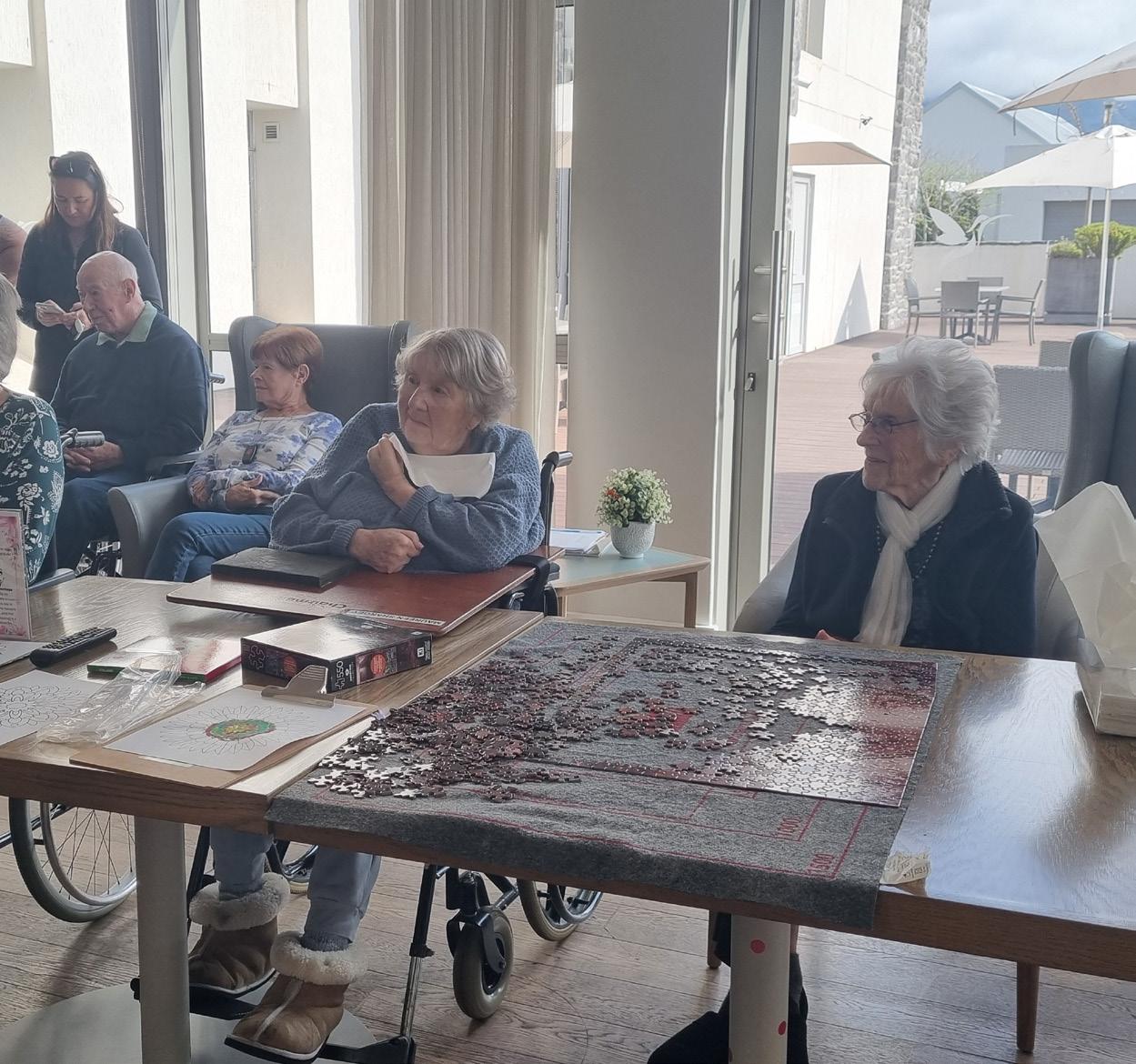
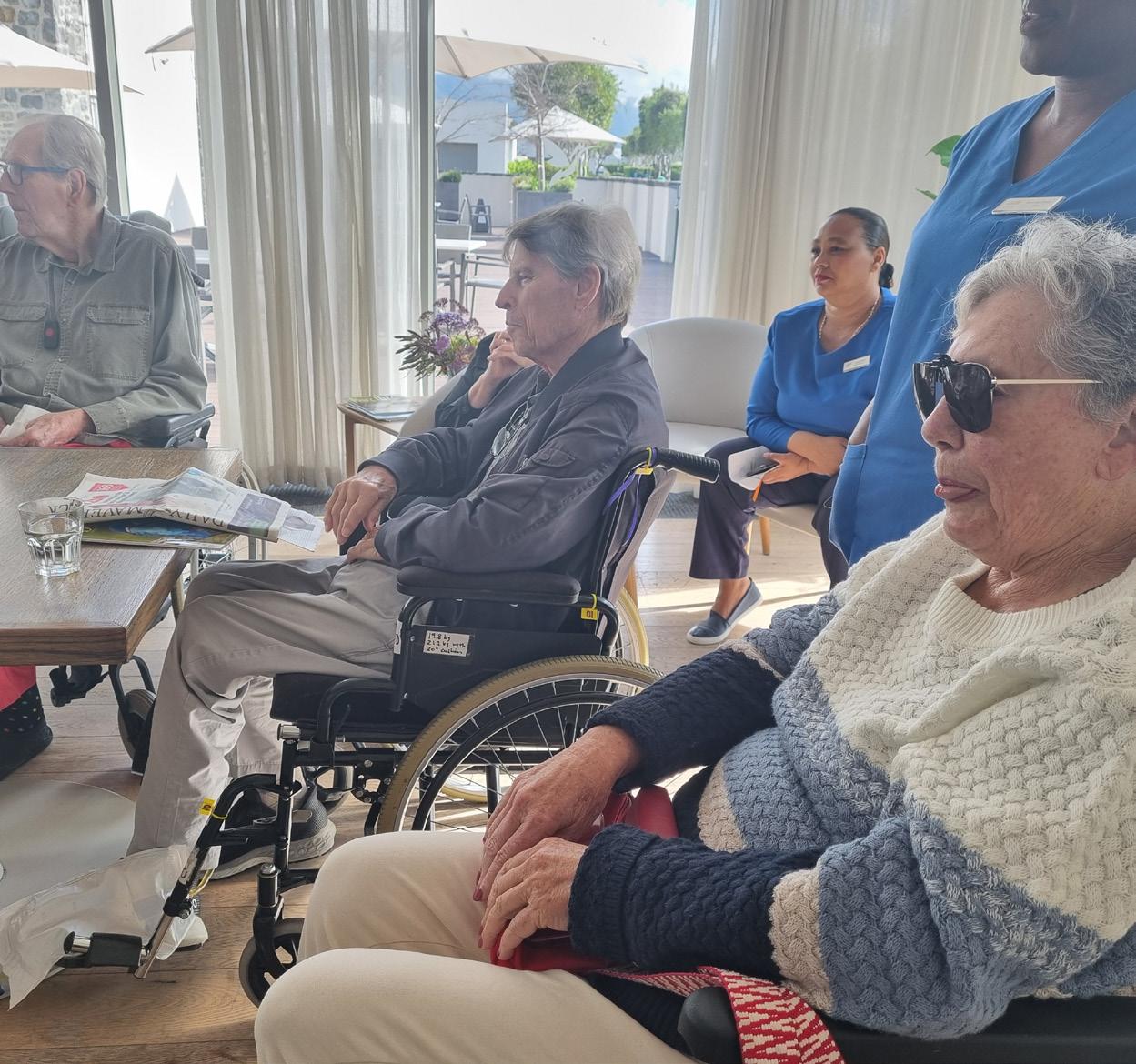
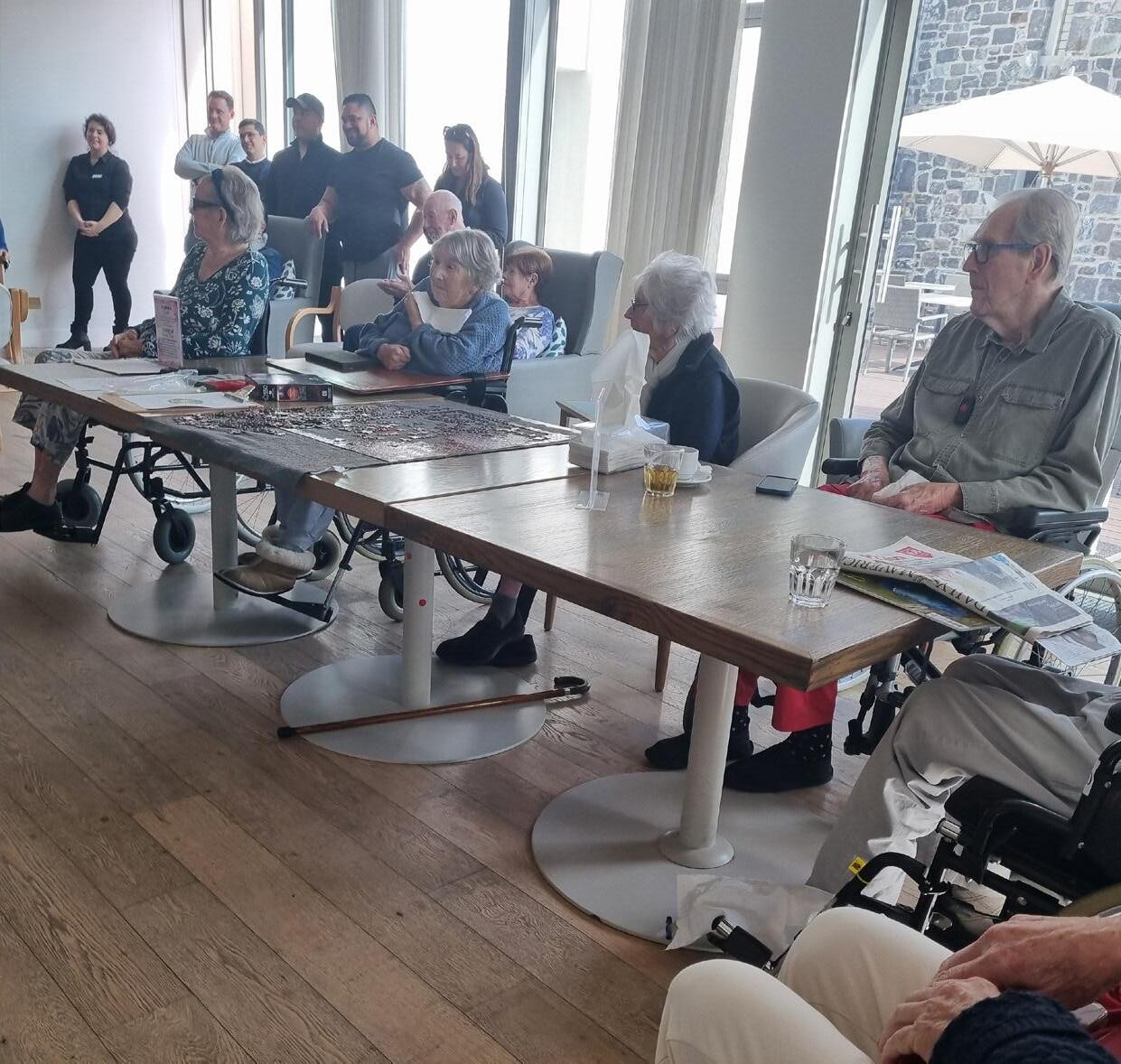
ALL THINGS NURSING
Our nurses are at the heart of our work, and we’re grateful for their unwavering commitment and care. Here is a snippet of them enjoying some welldeserved time together.
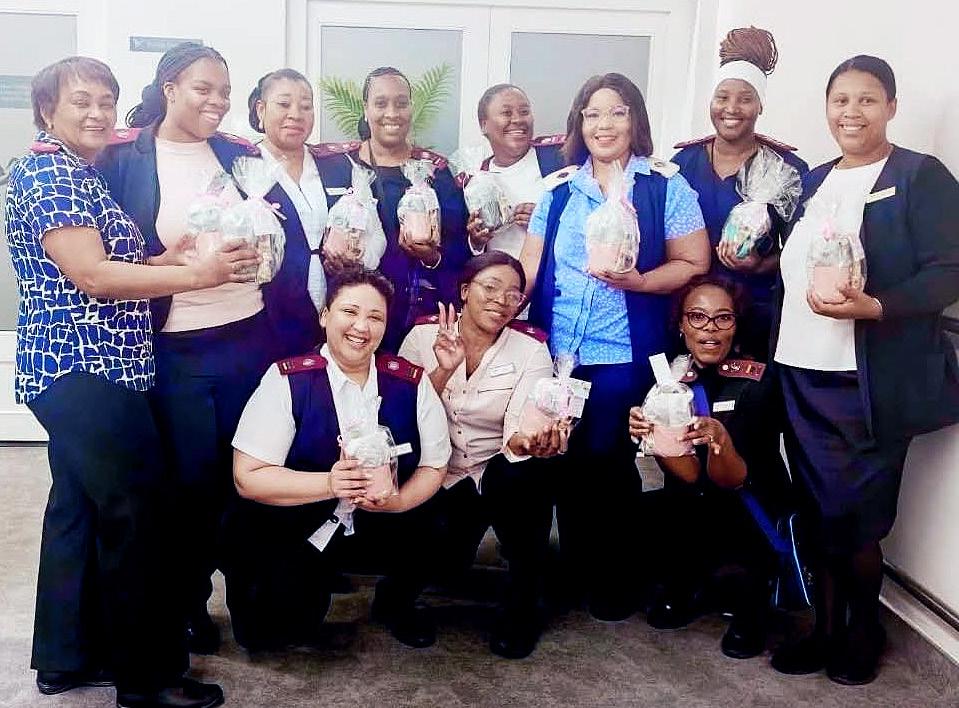
NEWS FROM OUR SOCIAL WORKERS
Growing, Learning, and Supporting: The Heart of Social Work at Faircape
Our social work department has been hard at work upskilling, diving into new knowledge and honing their skills in some of the most sensitive and important areas of care.
Here’s a sneak peek at what we’ve been up to:
• All our social workers completed a short course in palliative care presented by the Association of Palliative Care Centres (APCC).
• Liesl de Kock added another feather to her cap by completing Oncology Training for Social Workers with the inspiring Linda Greeff.
• Angelique Oosthuizen, Rebekah Delsouiller, Sherae Swart, and Juanee Pretorius bravely tackled the difficult topic of suicide assessment and intervention in a workshop led by Belinda from Wisemind.
• We also got our thinking caps on during capacity assessment training with Suzaan Jenkinson, an experienced UK-trained Best Interest Assessor.
• On the self-study front, we explored the world of art therapies to support healthy aging and brushed up on how to recognise and respond to anxiety symptoms in older adults.
While we love our training sessions and workshops, our greatest teachers are, and always will be, our residents. Many of the people we work with are two generations older than us, and while we bring the theory, they bring the wisdom, humour, resilience, and life lessons that no course can teach.
By Juanee Pretorius, Faircape Group Social Work Manager.

THE IMPORTANCE OF CLEAR COMMUNICATION IN DEMENTIA
Navigating the world of Dementia can be challenging, not just for the person experiencing it, but also for their loved ones. One of the most significant hurdles is communication. As memory and cognitive abilities decline, the way we interact with a person with Dementia must adapt. Instead of talking down to them, we need to find a new language of connection, one rooted in patience, empathy, and clarity.
Clear Communication Can Help:
Reduces Frustration and Anxiety: When a person with Dementia struggles to understand what’s being said, it can lead to confusion, frustration, and even agitation. Clear communication minimises these feelings.
Fosters Connection and Dignity: When a person with Dementia can still engage in meaningful interactions, it helps preserve their sense of self-worth and dignity.
Improves Quality of Life: Effective communication can lead to a better quality of life for both the person with dementia and their caregivers. It can prevent misunderstandings that lead to conflict and can make daily routines, like eating or getting dressed, go more smoothly.
The Right Approach and Mood
How you approach a person with dementia is as important as what you say. Your attitude and body language communicates your feelings more powerfully than your words.
Be a warm and calm presence: When you approach, do so slowly and from the front, so not to startle the person. A gentle, reassuring smile and a relaxed posture can immediately put them at ease. Maintain eye contact to show you are fully present and engaged. If they are seated, get down to their level to avoid a sense of being “talked down to.”
Project a positive and patient mood: Your tone of voice should be calm, warm, and gentle. Avoid sounding rushed, stressed, or condescending. The person will remember how you made them feel.
Use humour respectfully: A gentle joke or a shared laugh can be a wonderful way to connect and lighten the mood. Humour can ease tension but be mindful that humour is not at their expense.
The Power of Touch
Touch is one of the most fundamental forms of human connection, and for people with dementia, it can become a primary way to communicate when verbal skills decline.
A non-verbal bridge: When words fail, a gentle touch on the arm or a hand-hold can convey comfort, safety, and affection.
Releasing feel-good hormones: Research has shown that a caring touch can stimulate the release of oxytocin, often called the cuddle hormone, which promotes feelings of trust and well-being.
Tactile stimulation: Hand massages, brushing hair, or even using a soft blanket, can be a soothing and engaging sensory experience.
Respecting boundaries: Remember that not everyone is comfortable with touch. Always approach with sensitivity, paying attention to body language and personal preferences.
Tips for Clear Communication
Use simple, direct language: Avoid complex sentences, jargon, and abstract concepts and stick to one idea at a time. Speak slowly and clearly: Take your time, enunciate clearly, and use a calm, gentle tone.
Maintain eye contact: This helps the person focus and shows that you are present and engaged.
Be patient and listen: Don’t interrupt or rush them to finish their thoughts, and give them time to process and respond. Avoid arguing or correcting: If they say something that isn’t true, resist the urge to correct them.
Create a calm environment: Minimise background noise and distractions. A quiet setting makes it easier to focus on the conversation.
By adapting our approach, we can continue to build bridges of understanding and connection, even when the path is a little different than we expected.

Dementia Support Group
For Families & Loved Ones
This group offers a supportive space to share experiences, ideas, and strategies for navigating life with a loved one who has dementia. We aim to enhance your understanding of dementia, explore effective coping approaches, and foster meaningful connections with others facing similar challenges.
Session Dates
Friday 18 July th Friday 15 August th Friday 19 September th Friday 17 October th Friday 1 November st

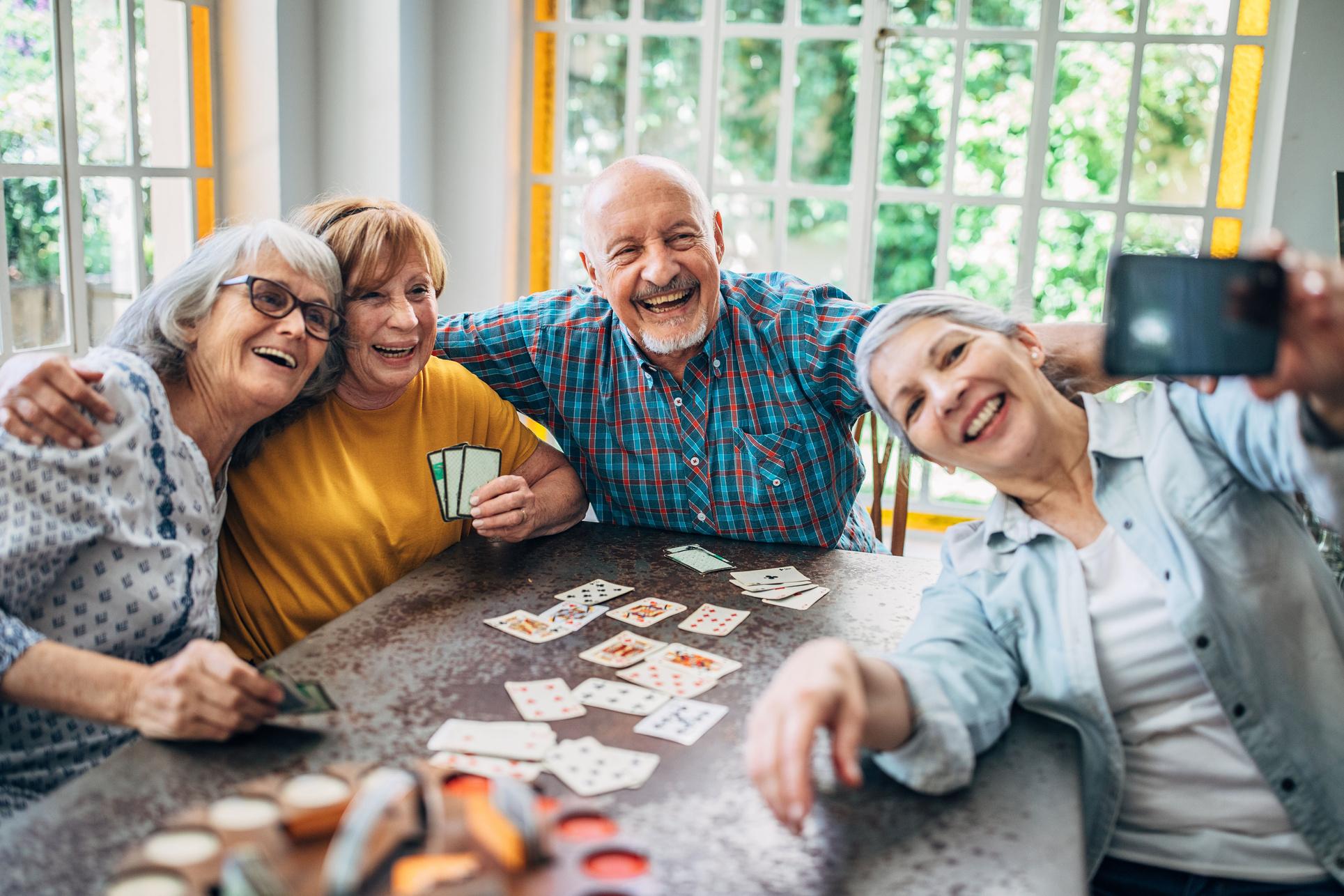
How do I sign up for this group?
